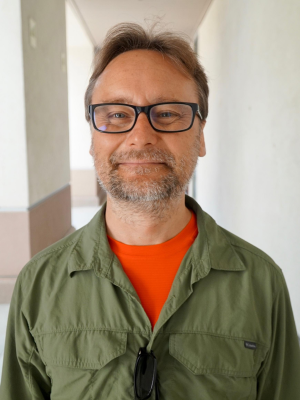
Scott Reid is interested in the role of communication in group processes and intergroup relations. His work is largely focused on social identity theories and more recently in evolutionary explanations.
Projects
1. Voice pitch shifts:
When we display anger, we often shift to a lower-pitched, monotonic style of speaking. Doing so increases the likelihood of access to fitness-enhancing resources and mates. It is therefore an evolutionary puzzle how a cheap signal could evolve--everyone should use this trick to get what they want. Our work shows that voice pitch shifts are honest signals of aggressive intent because they increase the likelihood of attack from physically formidable interlocutors. We would only risk the low-pitch voice shift if we are either willing to fight or calculate that we are more formidable than our interlocutor. Thus, the more physically strong a man is, the more aggressive he will become on hearing a low-pitch shifted voice:
https://drive.google.com/file/d/1isd22mrkv3r8RS0U7lyzCeHQHbXyrus2/view?usp=sharing
https://drive.google.com/file/d/1_I4Be5hzGD43u8HGu7vfPJLUsMf5jros/view?u...
https://drive.google.com/file/d/1rG38ETV69Zv3RcRFftC_Xi9IDMEKaC9D/view?u...
2. Costly signaling mechanisms in human communication:
Costly signaling theory has potential for wide applicability to a range of communicative processes that we do not currently understand well. We have spent a little time thinking about aggression, laughter, and language complexity.
https://drive.google.com/file/d/1ySGMxpODf6quTOn4pbUS4vp1S2zEagnF/view?u...
As well as why people might make large contributions to online information repositories:
https://drive.google.com/file/d/10IRRct6aCFApSp43nwf8i8PpYV372buI/view?u...
3. Other ongoing interests:
My other side-projects include work on the effects of pathogens and how they affect our ability to keep track of people in different groups. Our work shows that individuals who are more sensitive to pathogenic threats perceive bigger differences between accents than those less sensitive, but only when primed with disease stimuli:
https://drive.google.com/file/d/1WF8So-ds_yL7bPPjkS96-JtJhFJYsU2K/view?u...
Other ongoing projects are on the role of childhood experience of violence and Dark Triad traits (particularly Machiavellianism and psychopathy), and how these DT traits, in turn, predict rates of deceptive mating tactics (i.e., being a deceptive 'player') and online stalking for potential mates.
PhD. (2001), University of Queensland, Australia, Department of Psychology
MSc. (1997), Victoria University of Wellington, New Zealand, Department of Psychology
Dipl. Sci. (1996), University of Otago, New Zealand, Department of Psychology
BSc. (1995), University of Otago, New Zealand, Department of Psychology